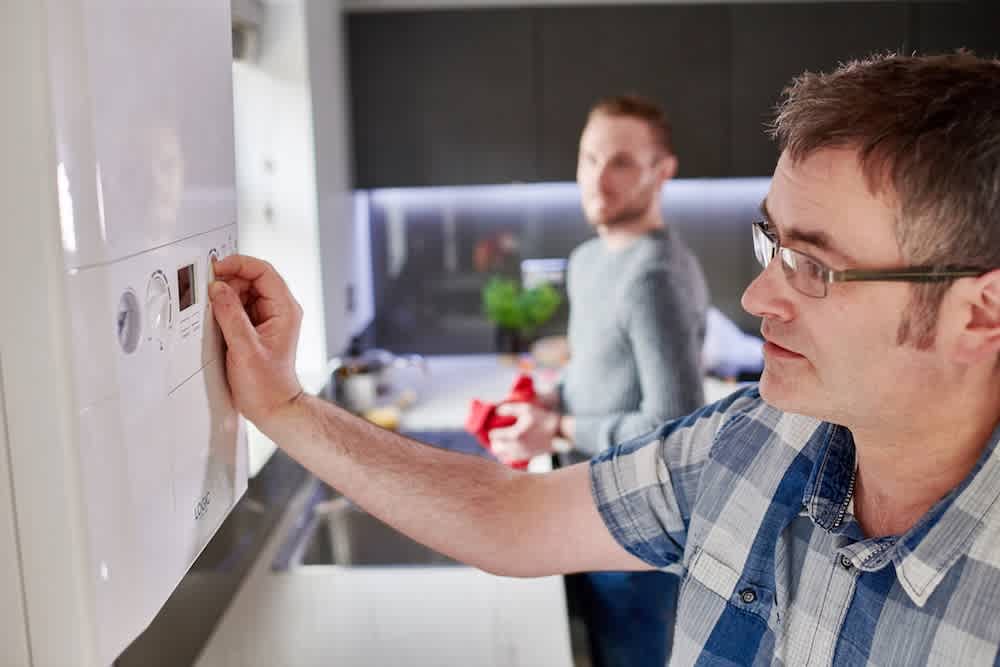
Essential tools & items for plumbers & gas heating engineers
Are you wondering what tools are essential for plumbers and Gas Safe heating engineers? Whether you are beginning your career as a heating engineer or you’re a professional plumber, it’s important to be as prepared as possible when attending your jobs. As an engineer you must ensure you have all the basic tools to work safely and efficiently.
Throughout your career your plumbing tools list will expand. As you attend work on gas boilers and piping systems you will begin to notice which tools are a must-have in your kit. From Allen keys and gas leak detectors to blow torches and cordless drills, you’ll need many essential tools when becoming an Gas Safe registered engineer.
Building your tool kit can be an expensive process. Why not sign up to Install Connect, where you can earn points and save money on your essential tools?
In this blog, Ideal Heating has created an A-Z list of all the tools you need to be a successful, organised plumber and gas heating engineer.
A-Z plumbing & gas engineering tool kit List
Allen keys
As a plumber or gas engineer you will find that many taps, shower heads and more are secured with certain hexagon-shaped screws and bolts. An Allen key is crafted to tighten and unscrew these hexagon sockets, so get organised and have a selection of different Allen key sizes in your Gas Safe engineer tool kit.
Blow torch
Gas Safe engineers are required to check for any pipe leaks and to ensure there is no risk of leaks during an installation. A blow torch is the best way to check the joints of the piping system are properly sealed, keeping the property and occupiers safe. Blow torches are portable and easy to store in your tool box, but it’s important to make sure it can provide a high enough flame for effective soldering.
Cordless combi drill
As a plumber you may be required to drill holes, so a cordless combi drill is ideal for the job. Within your plumbing tool kit it’s wise to have a portable power drill that can be recharged when not in use and has various speed settings to take out even the toughest of screws.
Drain down hose
Central heating and gas boiler systems need to be drained, therefore having a drain down hose in your tool kit is essential. This is a clean and leak-free way to drain down a heating system before you start any maintenance and repair work.
Electronic gas leak detector
Gas Safe engineers and plumbers need to accurately measure gas leaks, so it’s important to have an electric gas leak detector. Detectors utilise ultrasound measurements, which establishes where the gas leak is within the system, whilst providing valuable readings for the engineer. It’s essential that a quality gas leak detector is part of your plumbing tool kit.
File set
A file set is required in a Gas Safe engineer’s tool kit when fine shaping is necessary. A file set is ideal for deburring or if preparing a surface where you need to minimise how much material is filed away.
Gas meter box key
Accessing the gas meter is often needed in the role of a Gas Safe engineer, so having a universal gas meter key is an important tool for your kit. A gas meter key is a simple, basic tool that you require and is highly recommended to make sure you can open gas meter boxes.
Hacksaws
Hacksaws are extremely useful when it comes to cutting pipes, nuts, bolts and screws. We recommend you invest in various types of hacksaw so you are prepared for any job that comes your way. Hacksaws are also handy when space is tight as the blades can be used without the frame.
Inspection camera
Plumbers and gas engineers should never be without an inspection camera. These can be expensive, so earning points with Install Connect can have many benefits and can help you add an inspection camera to your tool kit. The camera provides visuals from tricky angles and difficult-to-reach areas, so an inspection camera will come in handy for checking blocked pipes and carrying out work in small, dark spaces.
Jigsaw
In the role of a plumber or Gas Safe engineer, you’re likely to attend some tricky cutting jobs. When complex shapes need cutting you will be required to use a jigsaw, so it's handy to have one readily available.
Knee pads
Safety and your health should be a priority when working as a plumber or gas engineer. During your role you will be required to work on the floor, often kneeling for extended periods of time. Wearing knee pads can help prevent you from pain and injury.
Leak sealer
With the correct installer training and tools, such as a fast acting silicone leak paste, you will be able to seal any external leaks. Leak sealer should always be placed in your Gas Safe engineer and plumber tool kit as it can be used on both hot and cold pipes without contaminating the drinking water.
Mole grips
Mole grips, also known as locking pliers, are a tool primarily used for taking a powerful grip on nuts and bolts. They are ideal for unscrewing and tightening screws and bolts - even those with worn edges. Don’t be fazed by over-tightened screws and bolts. Simply pack a mole grip in your plumber tool kit.
Needle nose pliers
Having the right tools and understanding the products you are installing or repairing can ensure your job runs smoothly and efficiently. A fundamental tool to use on heating systems is a pair of long nose pliers which can twist, cut and shape where necessary.
Open-ended spanner set
Many professional engineers and plumbers will need an open-ended spanner set on just about all of their jobs. They ensure that all nuts, bolts and screws can be tightened, unscrewed and adjusted, allowing for a perfect install and lowering the risk of any leaks. There will rarely be a situation where one won’t be used, so it’s extremely important to have one on your plumber’s tool list.
Pipe cutters and wrench
Being able to cut through piping is important, and a, pipe cutter can offer a much cleaner cut compared to using a hacksaw. They are also ideal for cutting pipes in narrow spaces. Within your tool box it’s also essential to have various pipe wrenches for different jobs. These are used to turn pipes and fittings, as well as removing tight nuts and bolts.
Qualifications
Gas engineering and plumbing is a professional and regulated job, so you need the right qualifications and certificates to be able to do the work. To become a gas engineer you must go through a training process so you are able to legally work in people's homes and workplaces. As a gas heating engineer you must also be Gas Safe registered and show your Gas Safe ID card before starting any maintenance or repairs on a heating system.
Radiator key
If a boiler's pressure is too high then a radiator key will be needed to bleed them. The key is used to turn the screw, which is necessary to release any pressure from the radiator. Radiator keys are universal, meaning having just one in your Gas Safe engineer tool kit will allow you to bleed all standard radiators.
Soldering pad
It’s important to protect your surrounding surfaces when working with open flames and soldering with a blow torch. Your tool kit will require a soldering pad — these are flame-resistant and protect everything in the area where you are soldering.
Torch
As a heating engineer you may have to inspect or repair a boiler in a dark space, such as a loft, or work with pipes under the floorboards, so having a torch in your kit will be a great help. A torch that is capable of lighting up dark, small spaces will help you withstand the hardest of jobs. The ideal torch will be portable, lightweight and provide you with enough light so you can complete your job.
U-gauge air testing kit
As a plumber you may have to carry out air tests on sewers and drains. A U-gauge air testing kit will ensure that your customers are complying with building regulations. The kit will include everything you need to complete an air test such as a tee piece, U-gauge and hand bellows pump.
Vacuum cleaner
As well as the technical duties of a plumber and gas heating engineer, you will also have to ensure you maintain a clean and tidy work space. Having a vacuum, corded or cordless, in your Gas Safe engineer tool kit will make the cleaning process quick and easy.
Water pump pliers
Considered as the perfect holding tool, water pump pliers allow you to adjust a range of jaws. They are also ideal for gripping tight screws and bolts, making your life as a Gas Safe engineer and plumber much easier.
Xmas essentials
Ensure you are ready for the festive season by making sure you have the correct workwear and PPE for your jobs. As a plumber and heating engineer you may be required to work outside and in cold conditions, so make sure you are prepared with warm clothes ahead of the winter months. You can also sign up to Install Connect where you can redeem points and save money on workwear essentials, so you can treat yourself ahead of Christmas.
Yellow silicone tape
When working with stainless steel pipes, as a plumber or Gas Safe engineer it’s convenient to seal them with an anti-leak yellow silicone tape instead of replacing the whole pipe. If stainless steel pipes are exposed to air they can corrode, so having a roll of yellow silicone tape in your tool kit can save you money, time and labour.
Z-Vent
Finally, having a Z-Vent® within your tool kit is not essential but can reduce the install cost of a vent system. A Z-Vent® is a self-sealing special gas vent system designed for use with boilers and high-efficiency furnaces. Adding a Z-Vent® to your Gas Safe engineer tool kit can help save you time, money and help run your job more efficiently.
You’ll find further advice for plumbers and gas heating engineers in our FAQs, as well as more in-depth guides on the� Ideal Heating blog. You can also follow us on Instagram, Facebook and Twitter for more installer tips.
 01482 498660
01482 498660

















